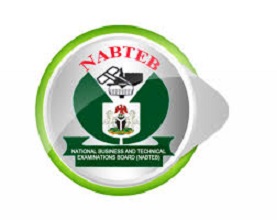NABTEB 2021 CIVIC EDUCATION VERIFIED ANSWERS
PART I
(1a)
Inter communal relationship is a relationship which exist between two or more communities.
(1b)
interpersonal relationship is an association between two or more people that may range from fleeting to enduring.
(1c)
[Pick any four]
(i) Work Ethic.
(ii) Relationship Management.
(iii) Receptiveness to Feedback.
(iv) Body Language.
(v) Listening.
(vi) Collaboration.
(vii) Conflict Management.
(viii) Self confidence
(1d)
(i) Tolerance
(ii) Communication system
(iii) Trust in one self
(iv) Compatibility
======================================================
(2)
Human rights are moral principles or norms that describe certain standards of human behaviour and are regularly protected in municipal and international law.
(2b)
(i) Freedom from torture and other cruel, inhuman or degrading treatment or punishment (ICCPR Article 7)
(ii) Freedom from slavery and servitude (ICCPR Article 8)
(iii) Freedom from imprisonment for inability to fulfil a contractual obligation (ICCPR Article 11
=========================================================
PART II
(3a)
Human trafficking is the trade of humans, most commonly for the purpose of sexual slavery, forced labor or commercial sexual exploitation for the trafficker or others.
(3b)
[Pick any four]
(i) Poverty, natural disasters and a search for a better life.
(ii) Women and children are targets.
(iii) Demand for cheap labor.
(iv) Human trafficking generates a huge profit.
(v) Cases of human trafficking are difficult to identify.
(vi) Political conditions.
(vii) Social and Cultural practices.
(viii) War.
(3c)
Victims of human trafficking can experience devastating psychological effects during and after their trafficking experience. Many survivors may end up experiencing post-traumatic stress, difficulty in relationships, depression, memory loss, anxiety, fear, guilt, shame, and other severe forms of mental trauma.
======================================================
(4a)
Drug abuse refers to the use of drugs through self-medication or without due medical prescription and administration.
(4b)
[pick any four]
(i) Early drug use
(ii) Lack of parental supervision
(iii) Parental substance abuse
(iv) Peer pressure
(vi) Physical or sexual abuse
(vii) Poor family communication or bonding
(viii) Stress
=========================================================
PART III
(5a)
Democracy is government in which power and civic responsibility are exercised by all adult citizens, directly, or through their freely elected representatives.
(5b)
(i) Voting
(ii) Paying taxes
(iii) Jury duty
(iv) Petitioning and protesting
(v) Democracy: room to grow
(5c)
(i) it promote stability in the country
(ii) Democracy provides h chance to all the citizens to choose their representatives, and change them, if they do not work according to their wishes
(iii) Democracy provides all the citizens some basic rights through which they can give their opinion
(5d)
(i) There are roadblocks to a strong democracy in Nigeria at all levels of government.
(ii) Conflict triggered by political competition and communal, ethnic, religious or resource allocation rivalries poses a major threat to democracy.
(iii) Corruption pervades the daily lives of Nigerians.
========================================================
(6a)
political apathy is a feeling of disinterest or apathy towards politics
(6b)
(i) Lack of interest on election
(ii) it leads to low voters turnout
(iii) it leads to stagnation in state government
(iv) it leads to lack of interest in public meetings & voting
(v) it leads to lack of interest in political events
(6c)
(i) by defending the the fundamental human rights of a citizens
(ii) inculcating civic values
(iii) Making leader accountable to the that voted them
(iv) independent/ Non – Partisan judiciary
(v) Establishing corrupt free electoral body that would act as an impartial umpire in the electoral process
